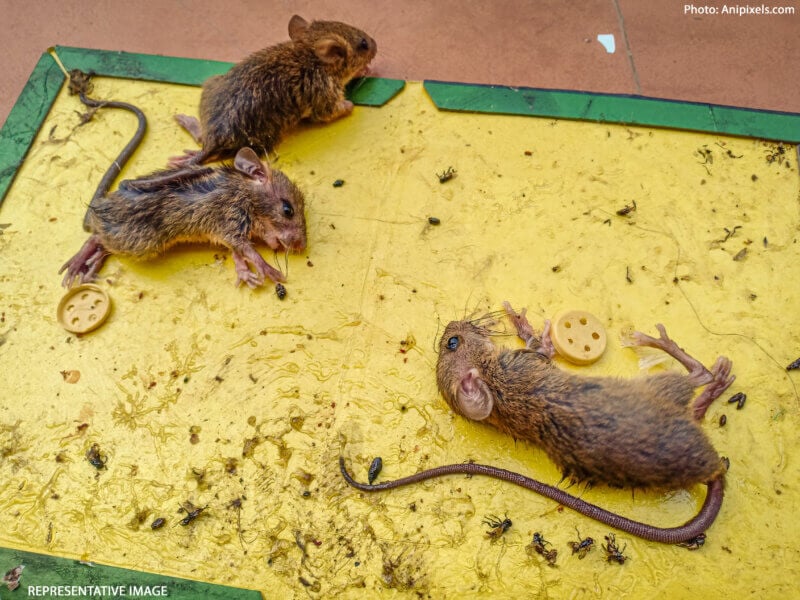Victory! Delhi’s Rajmandir Hypermarket Stops Glue Trap Sales After Push From PETA India
Following an appeal from PETA India, Delhi-based retailer Rajmandir Hypermarket has stopped selling glue traps – trays coated with a sticky adhesive that ensnares small animals, who can suffer for days before dying – at its stores. The move comes after 32 states and union territories across India, including Delhi, prohibited the manufacture, use, and sale of glue traps in response to PETA India’s efforts. Online platforms Amazon India, Meesho, Flipkart, Snapdeal, and JioMart removed and blocked listings for glue traps earlier this year after being contacted by PETA India.
Wildlife – including birds, snakes, mice, rats, and squirrels – who get stuck in the glue struggle desperately to escape, sometimes chewing off their own limbs before succumbing to shock, dehydration, asphyxiation, or blood loss. They continue to produce urine and faeces, through which pathogens including hantavirus, salmonella, and the bacteria that cause leptospirosis are transmitted, posing a major health hazard. Glue traps are also largely ineffective because they neglect to address the source of the problem: as long as food remains accessible, more animals will move in to take the place of those who have been killed.
The best way to control rodent populations is to make the area unattractive or inaccessible to them: eliminate food sources by keeping surfaces and floors clean and storing food in chew-proof containers, seal trash cans, and use ammonia-soaked cotton balls or rags to drive rodents away. (They hate the smell.) After giving them a few days to leave, close entry points using foam sealant, steel wool, hardware cloth, or metal flashing. Rodents can also be removed using humane cage traps but must be released in areas where they will find adequate food, water, and shelter to help them survive.








